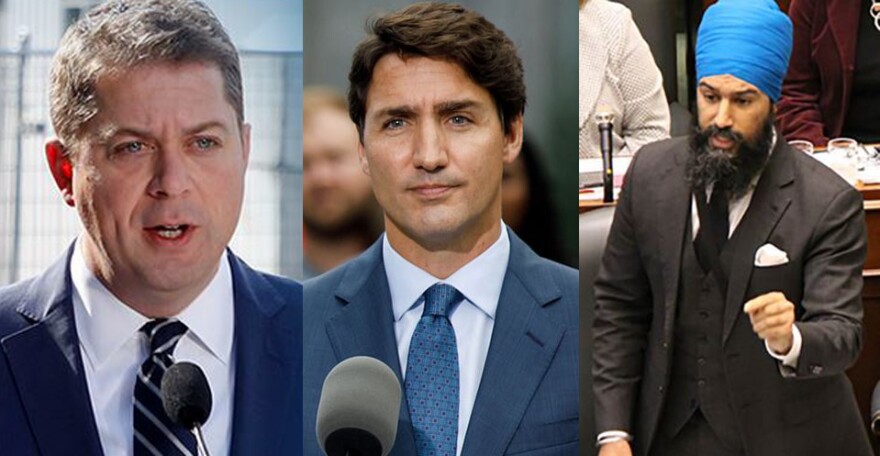With just days before Canadians go to the polls for a national election, the political parties and their leaders are pulling out all the stops to corral last-minute undecided voters. It has been a short 40-day campaign, and a tough one. Prime Minister Justin Trudeau’s Liberal Party and the opposition Conservatives began the contest neck-and-neck, and not much has changed.
With his voice running hoarse after more than 30 days of trying to persuade Canadians he is the only choice, Liberal leader Justin Trudeau was in Hamilton, Ontario on Canada’s Thanksgiving Day, kicking off the last week of his campaign before the Oct. 21 vote.
Trudeau and the other leaders are now focusing their appearances in key electoral district, mainly where they have an opportunity to wrestle away seats from other parties or where they need to shore up support for their own.
Ontario has been a crucial battleground. It’s often true that if a party wins big in Ontario, it will win the election. Trudeau swept all the seats in Atlantic Canada in the last election in 2015, more than half of those in Quebec and 80 percent of Ontario. It was a big win for the Liberals.
Trudeau wants to become the first prime minister since Jean Chretien to win back-to-back majorities. But his public support has fallen across the country and party strategists fear many seats in Ontario are at risk.
In last year’s provincial election, Conservative Doug Ford swept the Liberals out of power. But Ford’s government has become exceedingly unpopular because of cuts to education and health care. Ford has stayed out of this federal election because of that unpopularity and Trudeau is using that to his advantage, painting his main opponent, Conservative leader Andrew Scheer, as "just another Doug Ford."
“Of course you all know what Conservative governments are like here in Ontario. You’ve dealt with Doug Ford’s cuts. Andrew Scheer has got four times as much that he’s planning on cutting across the country as Doug Ford is cutting in Ontario, and that is not what we need," Trudeau said.
Pollsters suggest Trudeau and Scheer are tied in popular support, around the 32% mark, not much different than when they started the race. The traditional third party in Canadian politics, the New Democrats, is being guided by the country’s first ever visible minority leader, Jagmeet Singh.
Singh’s popularity has steadily grown during the campaign as Canadians got to know him and his New Demoratic Party is hovering below 20%, suggesting Singh could hold the balance of power if neither the Liberals nor the Conservatives win a majority. Last week Singh said he would, if necessary, form a coalition with Trudeua’s Liberals, but this week he quickly walked back from that message.
“That was not my position. We have a number of priorities and I want Canadians to know they can vote New Democrats and all the commitments and priorities that we told you about, we’ll fight hard to make sure they’re put in place,” Singh said.
For his part, Scheer stoked fears within the political right about a Liberal NDP coalition.
"And now he's even leaving the door open to a coalition government with the NDP in a desperate attempt to cling to power. A coalition that will lead to even higher taxes, less jobs, more deficits and bigger household bills. It's the coalition Canadians can't afford," Scheer said.
The other parties in this election, the Greens, the separatist Bloc Quebecois, and the People’s party could come away with a handful of seats. And while the polls suggest a minority government is likely, they’re not saying which party, the Liberals or the Conservatives, would lead it.


